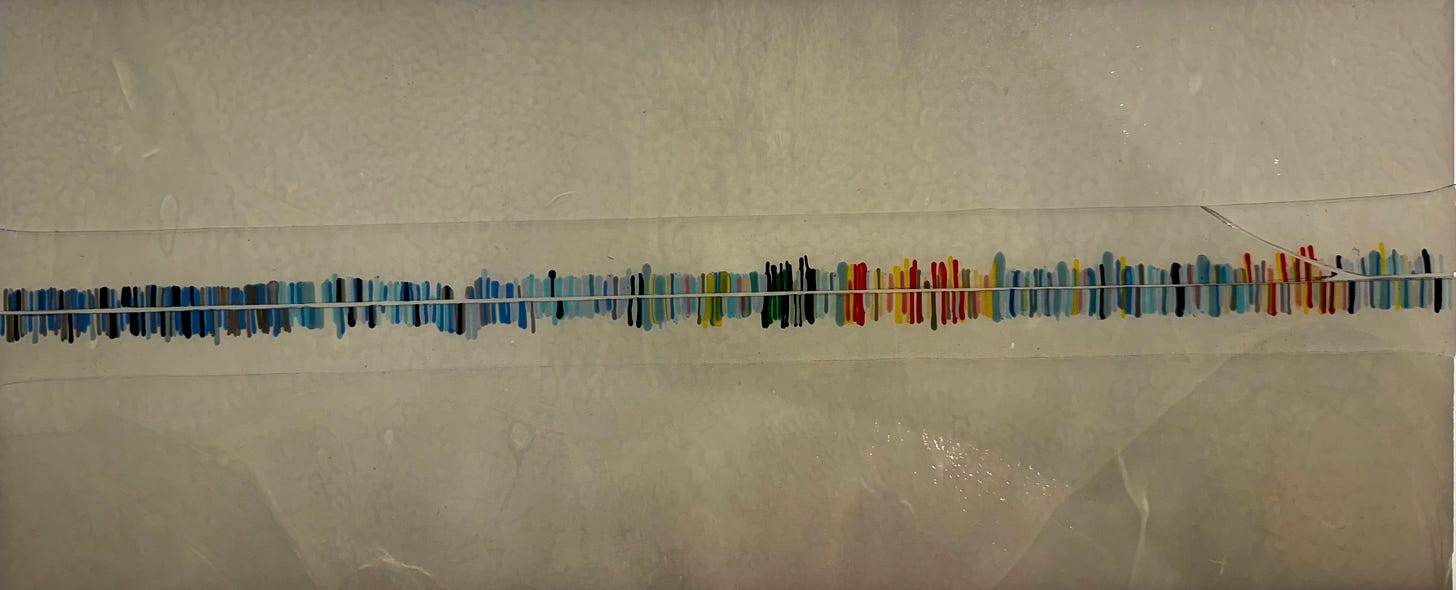Yes, everything is simple. It’s men who complicate things. - Camus
Pico Iyer & the abduction of existentialism
“Yes, everything is simple. It’s people who complicate things,” is often found on the web, where the word ‘men’ has been replaced by the word ‘people .’ In Pico Ayer’s new book, Aflame, he gets the quote correct, but does not provide one with any citation for further study and reflection.
Between Yes and No" from The Wrong Side and the Right Side, a collection of essays by Albert Camus, first published January 1, 1937
The Quote in Context
The putting of a little more of Camus’ language around the phrase provides the needed context, and the words also should not be tampered with, as when someone writes something, it is the best we have of a window into what the person was actually thinking and attempting to communicate at the time of the penning of the words. The usage may be sexist, or a more general word you may feel is more appropriate. Still, I reacted to reading this quotation in Iyer’s book (put in parens, I say!), thinking that while both genders do this (simplify), I think that women do not simplify as much as men. They are more sensitive to the complexity of the world. While this may be a tendency in what I read or hear, it could also be a function of men dominating the written word or our public space, and not a gender tendency - I leave it to you to judge.
I need my lucidity. Yes, everything is simple. It's men who complicate things. Don't let them tell us any stories. Don't let them say about the man condemned to death: "He is going to pay his debt to society," but: "They're going to chop his head off." It may seem like nothing. But it does make a little difference. There are some people who prefer to look their destiny straight in the eye.
The passage reflects Camus’s recurring meditation on the tension between the fundamental simplicity of existence and the complexities introduced by human thought, emotion, and society. This focus on simplicity and reduction of complexity is a central effort of all explanations of the world - the idea of parsimony, which in turn comes from —>
Occam’s razor, a principle stated by the Scholastic philosopher William of Ockham (1285–1347/49) that pluralitas non est ponenda sine necessitate, “plurality should not be posited without necessity.” The principle gives precedence to simplicity: of two competing theories, the simpler explanation of an entity is to be preferred. The principle also states, “Entities are not to be multiplied beyond necessity.” https://www.britannica.com/topic/Occams-razor
Of course, or my current meme: YA THINK? Is this ‘principle’ possibly brought to its rhetorical knees of meaninglessness, falsehood, and obsolescence in the current era?
Lyrical and Critical Essays is a collection that brings together Camus’s early lyrical meditations and his more analytical critical reflections. The quoted line encapsulates a central theme of Camus’s philosophy: the world, in its essence, is straightforward, but human beings, with their stories, justifications, and abstractions, overlay this simplicity with layers of complications. In “Between Yes and No,” Camus describes moments of stripped-down existence—grief, love, poverty, and death—where the “absurd simplicity of the world” becomes apparent. The simplicity he refers to is not naïveté but a kind of existential transparency: things are as they are, and meaning is not imposed but experienced. Camus warns against the tendency to obscure reality with stories or euphemisms.
Yet, the real world is complicated and complex, and the urge to simplify to zeros and ones, yes-no, or reductionism is fraught with the perils of oversimplification, confounding, and the false belief that models or algorithms can fully and completely capture the complexity of our experiences, the natural world, and knowledge of it and furthermore deliver complete and correct explanations of the causality (mechanisms of action) of events (see Trump & Musk statements for examples of moronic parsimony causal interpretations of natural and other events).
Nature and human endeavors are a series of nonbinary and probabilistic events cartwheeling through the universe. It is both absurd and laughable that the meaningfulness we attribute to our realities is eternally fixed in time and space, like the horizon we see but can never cross.
Joel D. Kallich, Horizon #8, Horizon Scare Quotes, Photograph 2024
Joel D. Kallich, Horizon #4, Blood on the Horizon, Photograph, 2025
Joel D. Kallich, Horizon #5, Trimmed Horizon, Kiln formed glass, 2025 (in process)






